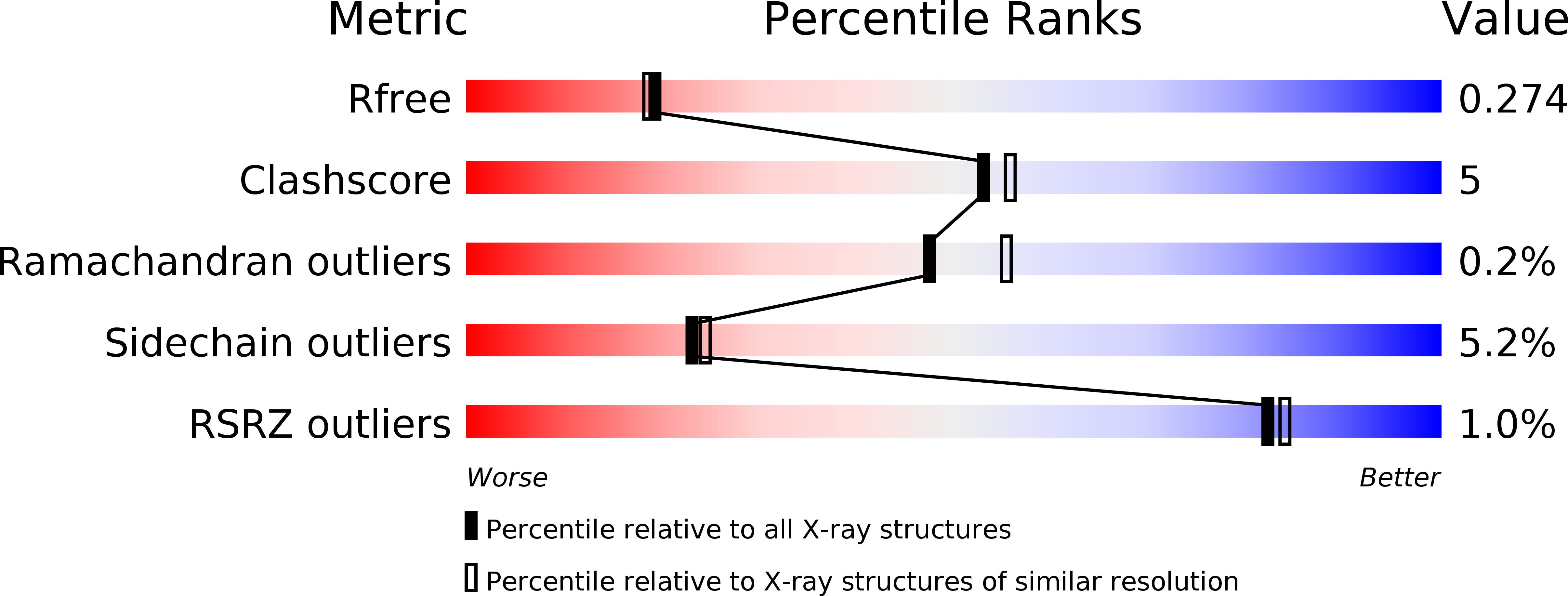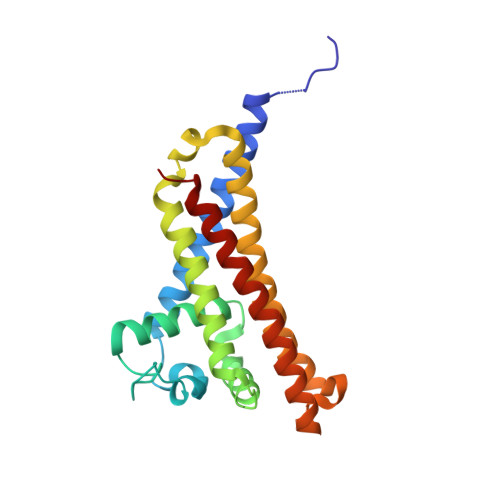BBE31 from the Lyme disease agent Borrelia burgdorferi, known to play an important role in successful colonization of the mammalian host, shows the ability to bind glutathione.
Brangulis, K., Akopjana, I., Petrovskis, I., Kazaks, A., Zelencova, D., Jekabsons, A., Jaudzems, K., Tars, K.(2019) Biochim Biophys Acta Gen Subj 1864: 129499-129499
- PubMed: 31785327
- DOI: https://doi.org/10.1016/j.bbagen.2019.129499
- Primary Citation of Related Structures:
6FXE, 6FZE, 6FZZ - PubMed Abstract:
Lyme disease is a tick-borne infection caused by Borrelia burgdorferi sensu lato complex spirochetes. The spirochete is located in the gut of the tick; as the infected tick starts the blood meal, the spirochete must travel through the hemolymph to the salivary glands, where it can spread to and infect the new host organism. In this study, we determined the crystal structures of the key outer surface protein BBE31 from B. burgdorferi and its orthologous protein BSE31 (BSPA14S_RS05060 gene product) from B. spielmanii. BBE31 is known to be important for the transfer of B. burgdorferi from the gut to the hemolymph in the tick after a tick bite. While BBE31 exerts its function by interacting with the Ixodes scapularis tick gut protein TRE31, structural and mass spectrometry data revealed that BBE31 has a glutathione (GSH) covalently attached to Cys142 suggesting that the protein may have acquired some additional functions in contrast to its orthologous protein BSE31, which lacks any interactions with GSH. In the current study, in addition to analyzing the potential reasons for GSH binding, the three-dimensional structure of BBE31 provides new insights into the molecular details of the transmission process as the protein plays an important role in the initial phase before the spirochete is physically transferred to the new host. This knowledge will be potentially used for the development of new strategies to fight against Lyme disease.
Organizational Affiliation:
Latvian Biomedical Research and Study Centre, Ratsupites 1 k-1, LV-1067 Riga, Latvia; Riga Stradins University, Department of Human Physiology and Biochemistry, Dzirciema 16, LV-1007 Riga, Latvia. Electronic address: kalvis@biomed.lu.lv.
















